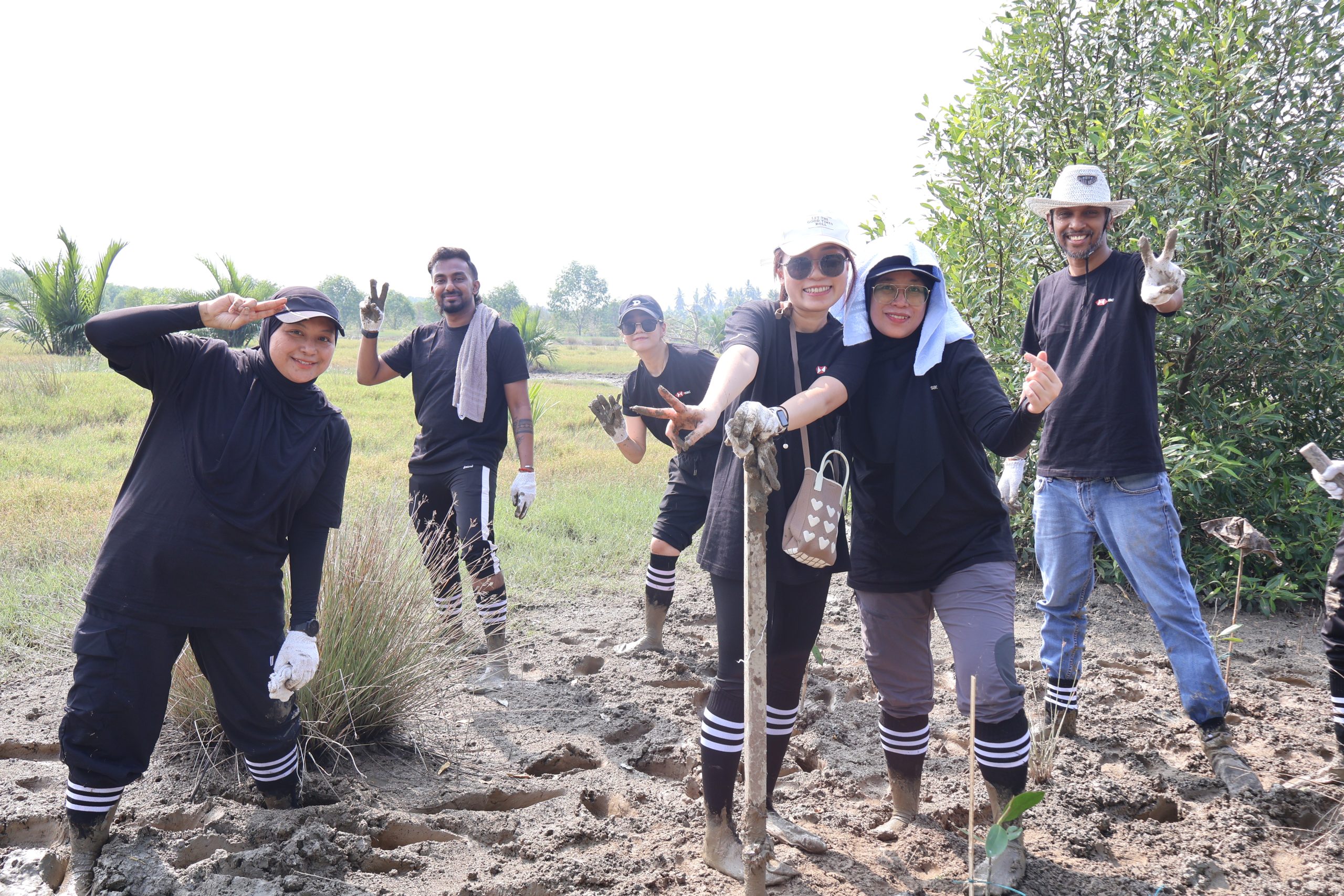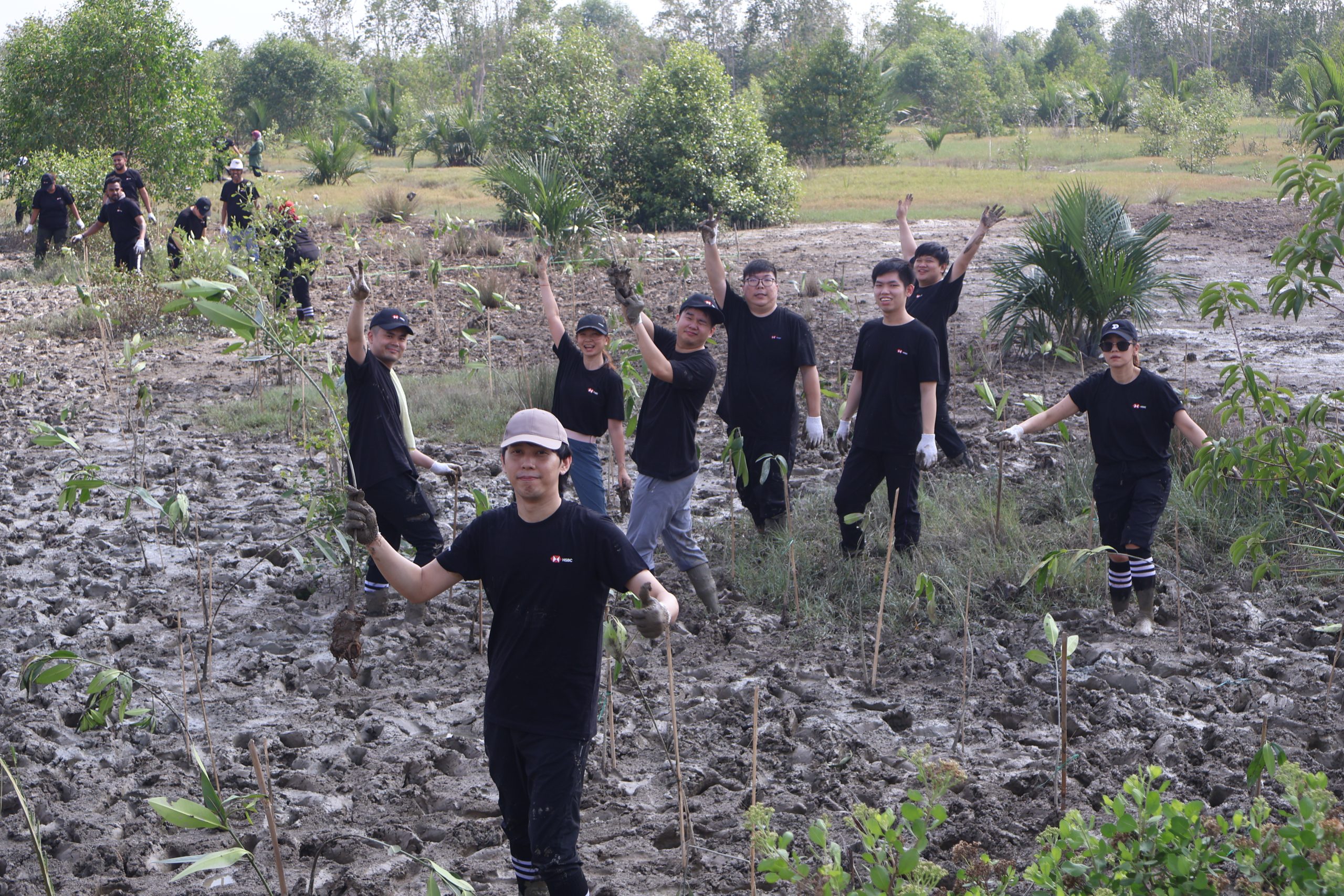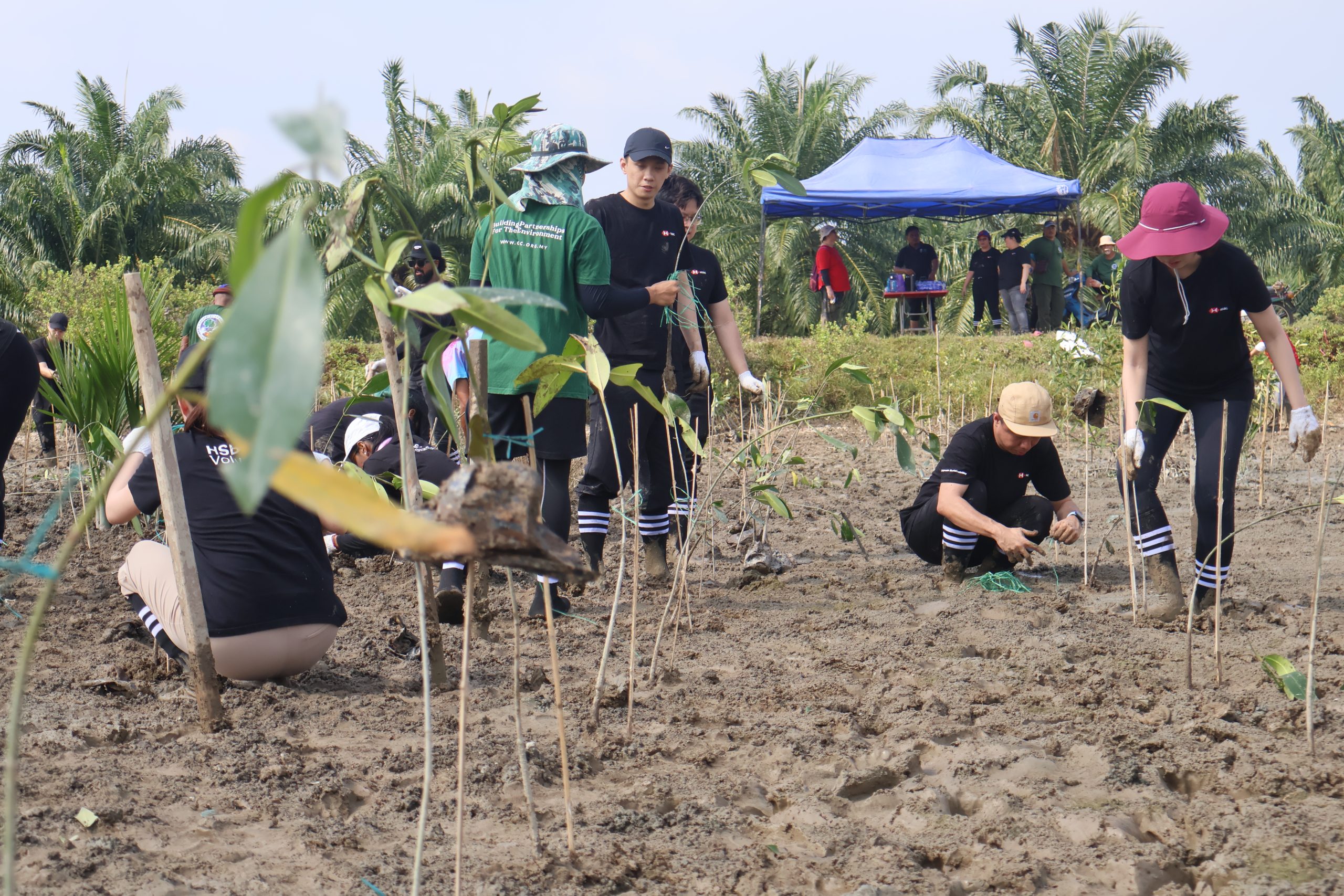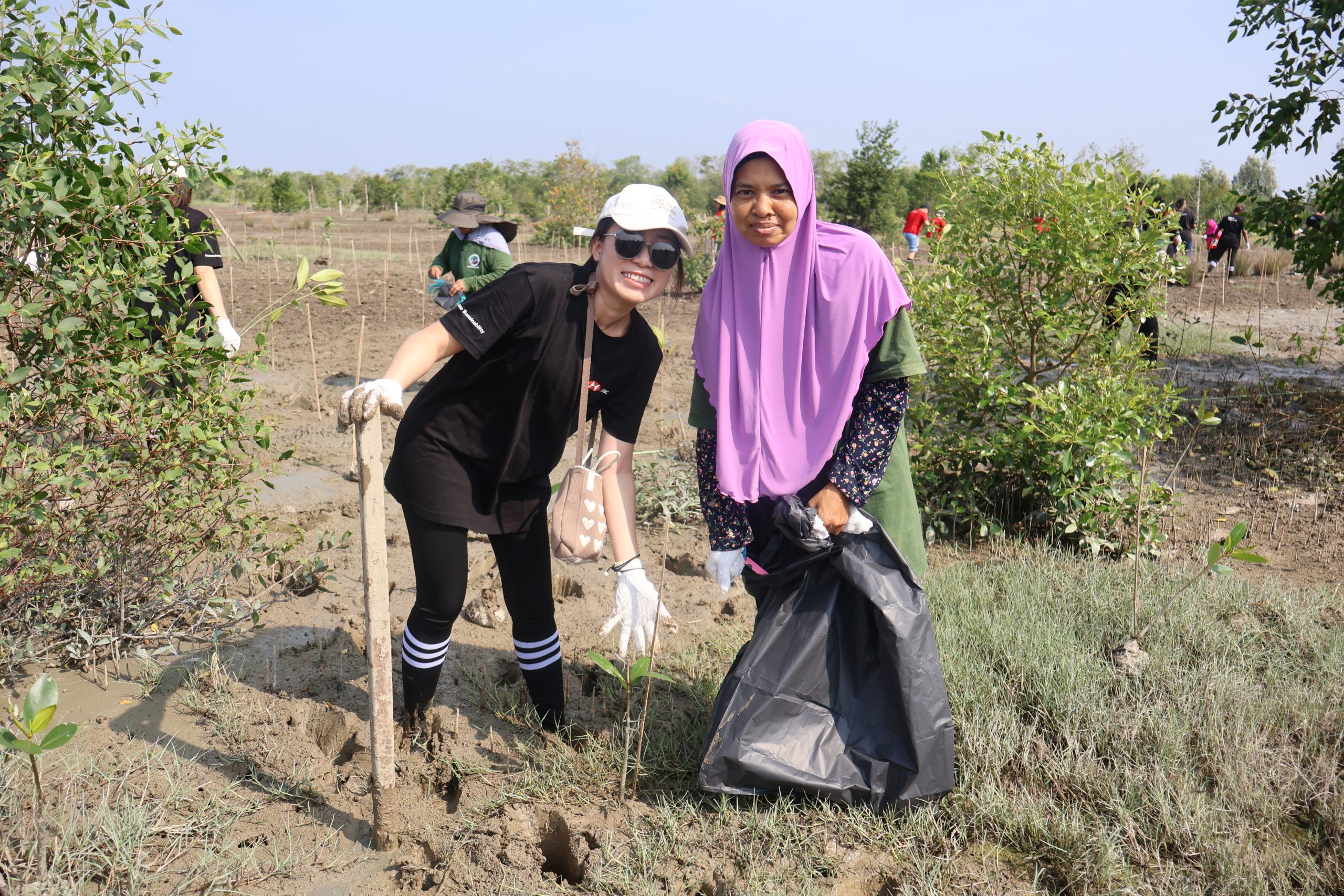The project focuses on rehabilitating and restoring degraded ecosystems across four key locations: Raja Musa Forest Reserve (RMFR) and Kuala Langat North Forest Reserve in Selangor, Tebuk Mendeleng Mangroves in Sabak Bernam, Selangor, and the Empangan Jus water reservoir in Melaka.
The project emphasises active community participation through established community-based organisations, including Sahabat Hutan Gambut Selangor Utara (SHGSU), Sahabat Gambut Asli Temuan (SGAT), Sahabat Hutan Bakau Kampung Dato Hormat (SHBKDH) and SMART. These groups maintain local nurseries and lead rehabilitation efforts, creating sustainable livelihood opportunities while protecting vital ecosystems.
Such approach builds on a successful 13-year partnership GEC, HSBC Malaysia and local authorities. By implementing nature-based solutions, the project addresses multiple challenges: ecosystem degradation, carbon sequestration, climate change adaptation, and rural poverty. The initiative supports government conservation efforts while promoting sustainable management practices.
Success metrics include improved biodiversity, enhanced water management, reduced fire incidents and strengthened community engagement in environmental stewardship. The project demonstrates how ecological restoration can create both environmental and socio-economic benefits for local communities.
Duration
April 2024 – April 2025
Objectives
- To rehabilitate 6 hectares (3,600 trees) of degraded peatland area in Raja Musa Forest Reserve and Kuala Langat North Forest Reserve.
- To rehabilitate 3 hectares (6,000 trees) of degraded mangrove ecosystem in Tebuk Mendeleng, Sabak Bernam.
- To rehabilitate 4 hectares (2,400 trees) of encroached water reservoir ecosystem in Empangan Jus, Melaka.
Key Activities
- Engagement with multi-stakeholders, site assessment and tree planting activities to:
- Rehabilitate forests in North Selangor Peat Swamp Forest and Kuala Langat North Forest Reserve, Selangor;
- Rehabilitate mangrove in Tebuk Mendeleng, Kampung Dato Hormat, Sabak Bernam, Selangor; and
- Restore encroached Water Reservoir Site at Empangan Jus, Jasin, Melaka.
Additional core activities:
- Community nursery management and maintenance;
- Regular monitoring and post-planting care;
- Training and capacity building for local communities; and
- Documentation and sharing of best practices.
Achievement
12,000 trees were successfully planted across three ecosystems.
Building on the remarkable success of the 2024 Phase 1 project, Phase 2 is continued with aim to plant 11,000 trees across degraded mangrove areas in Selangor and encroached water reservoir sites in Melaka through nature-based solutions that enhance climate resilience and biodiversity conservation.
The project addresses critical environmental challenges while delivering multiple co-benefits: enhanced coastal protection through mangrove restoration, improved water security through reservoir rehabilitation, carbon sequestration, biodiversity conservation and sustainable livelihood creation for local communities.
It marks GEC’s 14-year partnership with HSBC Bank Malaysia in projects that demonstrates scalable nature-based solutions for climate change adaptation while empowering local communities through sustainable livelihood opportunities.
Duration
June 2025 – June 2026
Key Activities
Activity 1: Mangrove Rehabilitation in Tebuk Mendeleng, Kampung Dato Hormat, Sabak Bernam, Selangor
- Engage community groups, stakeholders, and government agencies through targeted consultation.
- Conduct comprehensive site visits and assessment of degraded mangrove areas (3 hectares target).
- Plant 6,000 mangrove trees using Ecological Mangrove Rehabilitation (EMR) methods.
- Organise 2-3 HSBC volunteer events for hands-on mangrove tree planting activities.
- Strengthen SHBKDH community nursery capacity.
Activity 2: Restoration of Encroached Water Reservoir Site at Empangan Jus, Jasin, Melaka
- Collaborate with BKSA and local authorities to address illegal encroachment issues.
- Conduct site assessment and demarcation of restoration areas (10 hectares target).
- Plant 5,000 indigenous forest trees to restore water catchment ecosystem.
- Implement erosion control and water quality improvement measures.
- Support SMART community nursery operations.









